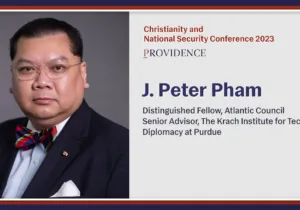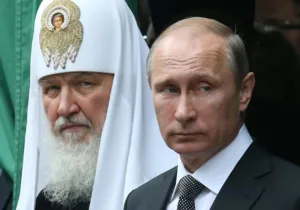Facing a parliamentary no-confidence vote after defying orders from the National Executive Committee (NEC) of his African National Congress (ANC) party to step down, President Jacob Zuma has resigned. Deputy President and ANC party president Cyril Ramaphosa has been elected interim president by Parliament, a position he will hold until next year’s elections. The announcement comes only two months after Ramaphosa, a former trade unionist and one of South Africa’s wealthiest politicians, was elected to the position of party president. Although Zuma had agreed to step down in the next three to six months, the ANC accelerated the timetable for his departure.
Earlier this week, the Hawks special police unit also raided the home of the Guptas, a family accused of “state capture”—that is, corrupt corporate clout over state decisions. The public prosecutor has accused the Gupta family of exploiting their friendly relationship with Zuma to influence governmental appointments, acquire lucrative contracts, and access confidential information. During the raid police also arrested one family member; they have since declared Ajay Gupta “a fugitive from justice.”
Since becoming President in 2009, Zuma has been perhaps the ANC’s most public liability, and his iniquities have spurred widespread discontent. He has been convicted by the Constitutional Court of South Africa of embezzling funds to expand his mansion in KwaZulu-Natal, and he has a suspicious relationship with the Guptas (part of which included using public funds to finance the lavish wedding of Vega Gupta). He defied an International Criminal Court warrant and South Africa’s Constitutional Court ruling by sneaking out Sudanese president Omar al-Bashir, a man who has made it his job to ethnically cleanse black African animists and Christians (of which South Africa’s population largely consists). Zuma earned an average approval rating of 2.8 out of 10 and the ire of former president F.W. De Klerk and legendary anti-apartheid activist and Nobel laureate Archbishop Desmond Tutu. The Economic Freedom Fighters party (EFF), formed in 2013 by expelled ANC member Julius Malema, exploited this discontent to attain 6.35 percent of the votes in their first national showing in the 2014 election—the third-largest share.
A 2016 Afrobarometer report on public perceptions of government in Africa tracks a precipitous decline of trust in government in South Africa from 2005 to 2015. The organization noted a 13-percentage point drop in respondents saying they trust parliament “somewhat or a lot,” and 19-percentage point jump in those saying “most or all MPs are corrupt.” Most damning of all, Afrobarometer noted a 36-percentage point jump in the proportion of respondents saying “officials who commit crimes often or always go unpunished”—the largest increase in all countries polled.
The ANC’s decision has a contemporary precedent in the Zimbabwe African National Union – Patriotic Front’s (ZANU–PF) expulsion of Robert Mugabe from the presidency and its party ranks last year. In both cases, a ruling party saw an opportunity to oust a corrupted head of state, regain popularity, and defend its anti-colonial legacy at little to no political cost. However, Zuma’s departure was peaceful and followed legal procedure. Ramaphosa was elected party head before the party demanded that Zuma step down; the ANC planned to comply with the no-confidence motion submitted by the EFF, despite their preference for bringing their own motion.
While governing a country with 27 percent unemployment, a fourth of the population experiencing hunger, endemic rape and murder, and the highest worldwide prevalence of AIDS infection (19 percent), Zuma decided to treat himself. With his deposition today, the JSE (Africa’s largest stock exchange) rose four percent, and the rand has strengthened against the dollar. Alongside the peaceful resolution of the Gambian elections, election and transfer of power in Liberia, and the ejection of Mugabe in Zimbabwe, the ANC’s successful pressure represents, at least, a greater sensitivity to public opinion among African governments, a greater understanding of their responsibility: “The one in authority…is God’s servant for your good. But…he does not bear the sword in vain” (Romans 13: 3-4).
—
Harry Green is an intern for Providence. He holds a B.S. in International Politics (with an African Studies certificate) from Georgetown University.
Photo Credit: Jacob Zuma, President of South Africa at the Opening Plenary on Africa and the New Global Economy at the World Economic Forum on Africa 2009 in Cape Town, South Africa on June 10, 2009. By Matthew Jordaan, via Wikimedia Commons.






 Sponsor a student for Christianity & National Security 2024
Sponsor a student for Christianity & National Security 2024